

Want to provide your kids with an active outdoor experience? A modular adventure park is an excellent alternative to traditional playgrounds. Unlike high rope courses that require specialized equipment, balance parks offer low platforms and obstacles designed for younger children. This allows kids to safely climb, balance, and overcome challenges, developing their agility and coordination. It's a great way to get kids off screens and encourage outdoor activity.
Below, we'll compare traditional rope parks with balance parks, also known as low-rope modular adventure parks.
Purpose:
Balance park: Suitable for a wide range of users, including children aged 6+, teenagers, and adults. It can be an alternative to traditional playgrounds, offering more physical activity options.
Traditional rope park: Often more demanding and aimed at those seeking greater challenges.
2 Height:
Modular rope park: Features low platforms and obstacles, usually no higher than one meter. This allows for play without the need for climbing harnesses or instructor supervision.
Traditional rope park: Offers high-altitude courses, often reaching several meters. They require the use of specialized climbing equipment, training, and instructor supervision.
3. Obstacles:
Balance park: Offers a variety of obstacles such as bridges, ropes, nets, and beams, all adapted to the low height. Obstacles vary in difficulty from very easy to extremely challenging. Due to the risk of large swings and collisions with other children, some elements are connected with chains or ropes to limit excessive movement.
Traditional rope park: Features more complex obstacles such as rope bridges, climbing walls, and rope slides, requiring greater strength and agility. Individual elements hang at a high altitude, so there are no restrictions even for heavy, swinging beams.
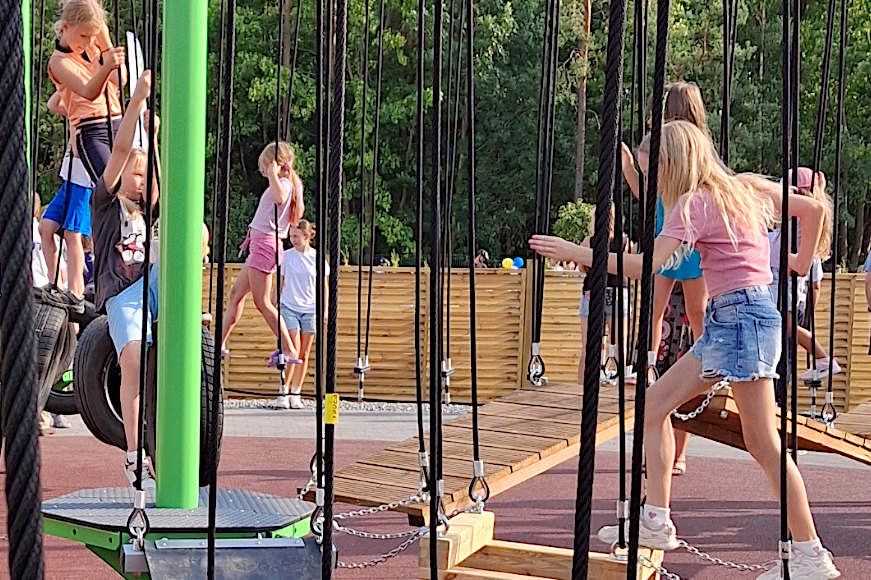

4. Safety:
Both types of parks: Must meet strict safety standards. However, due to its lower height, the low-course park is often perceived as a safer option, especially for young children. Please note that on low-course rope parks, safety restrictions related to standards such as the risk of entrapment and swinging heavy elements are significantly less stringent than on playgrounds. Although no one verifies the age and height of balance park users, as with rope parks, caregivers should use common sense and remember that it is not suitable for very young children, and the risk of injury is significantly higher than on a playground.
5. Accessibility:
Traditional rope parks often operate as closed facilities, requiring the purchase of an admission ticket. Their operation is seasonal and depends on weather conditions.
Modular parks are usually accessible to everyone, year-round, and completely free of charge. They are often located in city parks or other public spaces, making them an excellent option for those who want to be active without incurring additional costs.
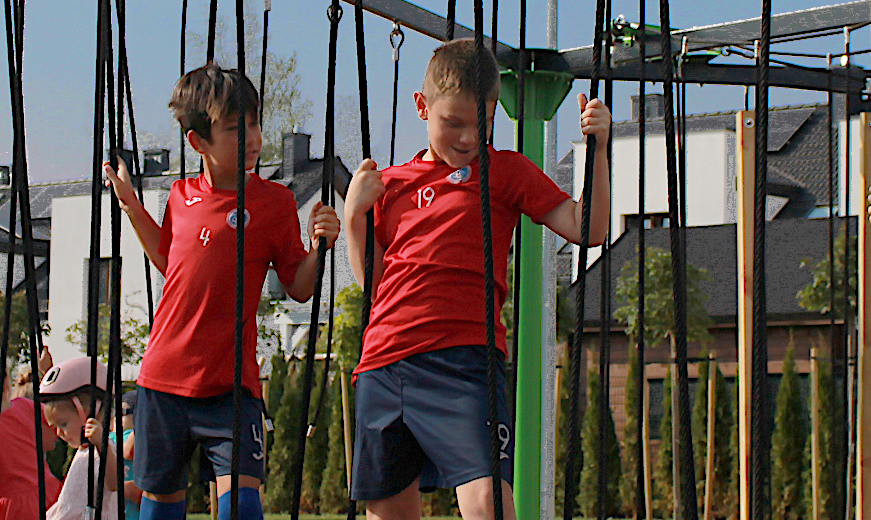
6. Maintenance costs:
Traditional rope parks, as often commercial facilities, require the employment of qualified staff to serve guests, conduct training, supervise routes, and ensure safety. Additionally, regular servicing of climbing equipment generates additional costs.
Public low courses, due to their simple construction and the lack of the need for constant guest service, are much cheaper to maintain. Regular technical inspections, seasonal repairs, and occasional modernization of individual structural elements are sufficient.

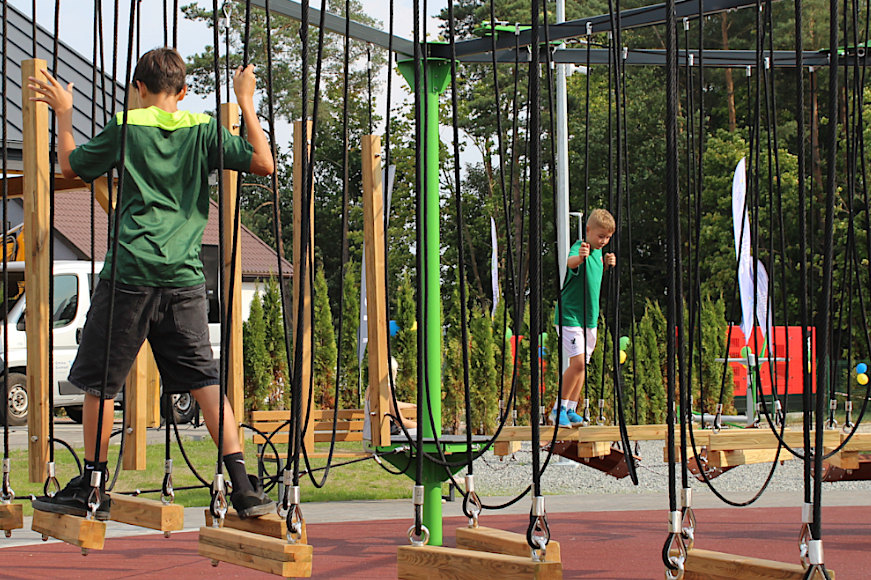
7. Construction:
Traditional rope parks often utilize natural terrain, using trees as anchor points for ropes and platforms. While this offers a natural aesthetic, it limits locations to areas with suitable trees.
Modular park have independent, freestanding steel structures. This allows for construction in virtually any location, regardless of terrain or the presence of trees. Steel structures are durable and weather-resistant, ensuring a long lifespan.
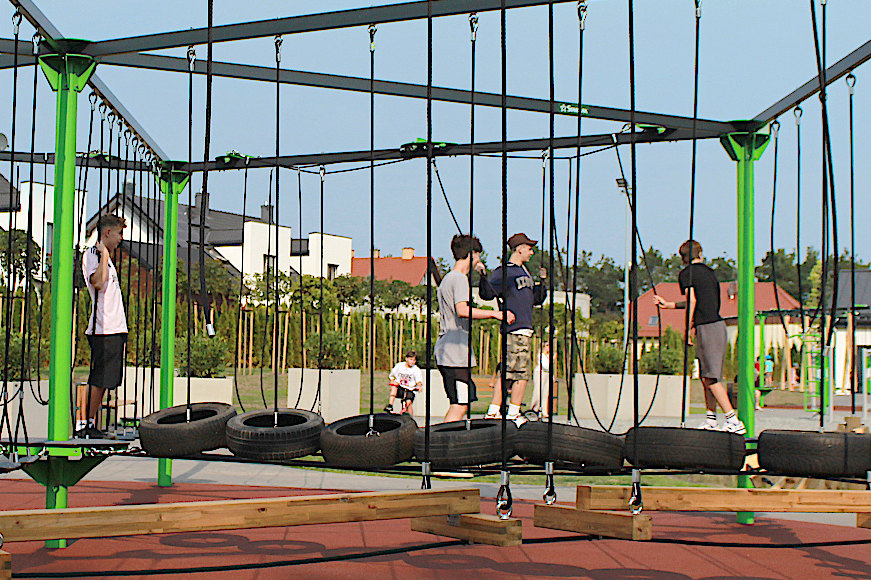
8. Tradition and habits:
Both traditional rope parks and balance parks have their unique advantages and disadvantages. The choice of the appropriate solution depends on many factors, such as site availability, budget, and user preferences. Balance parks, due to their versatility and durability, are becoming increasingly popular, especially in cities and areas with limited tree cover. However, traditional rope parks still have their fans who appreciate their natural character and harmony with the surroundings.
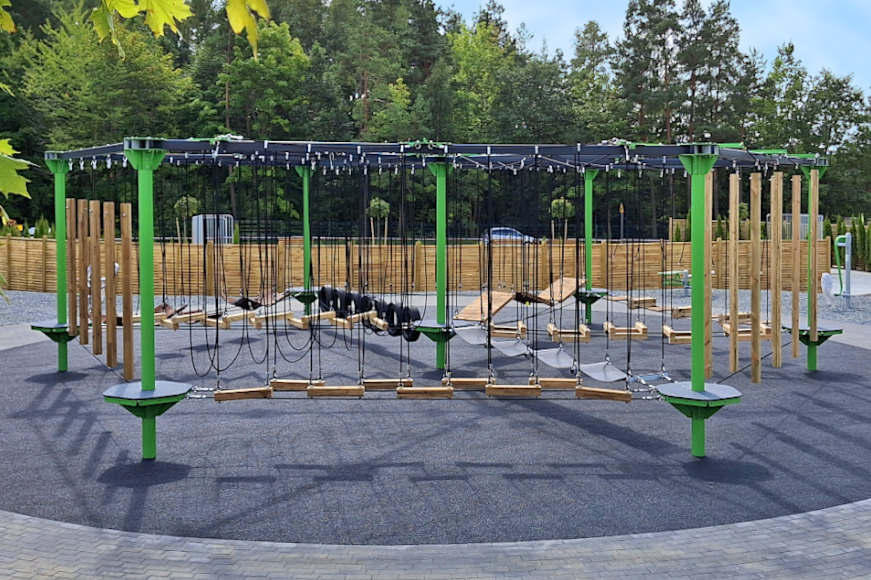
In conclusion, modular balance rope parks are an excellent choice for families with children who want to spend time actively outdoors. It is a safe and affordable alternative to traditional rope parks, offering many opportunities for fun and development. While traditional rope parks offer exciting adventures at height, balance parks focus on fun at ground level, providing greater safety and accessibility. Balance parks are the perfect complement to traditional playgrounds. Thanks to low platforms and diverse obstacles, children can develop their motor skills and coordination while testing themselves on increasingly difficult routes.
Key advantages of modular rope parks:
Adventure modular parks, due to their accessibility and low height, fit perfectly into public spaces. They complement city playgrounds and, along with skate parks and pump tracks, are particularly popular with older children and teenagers. Traditional rope parks, on the other hand, as commercial facilities offering more extreme experiences, find their place in forests and recreational centers. Both forms of activity have their unique advantages and can coexist, meeting the needs of various groups of users.
|
Starmax ul. Rycerska 3 83-050 Bąkowo naer Gdańsk POLAND |
|
Opening hours: Mo-Fr 8:00-16:00 |
|
Sales consultant Zobacz e-mail
|
|
Denis Boyko Export Manager Zobacz e-mail |